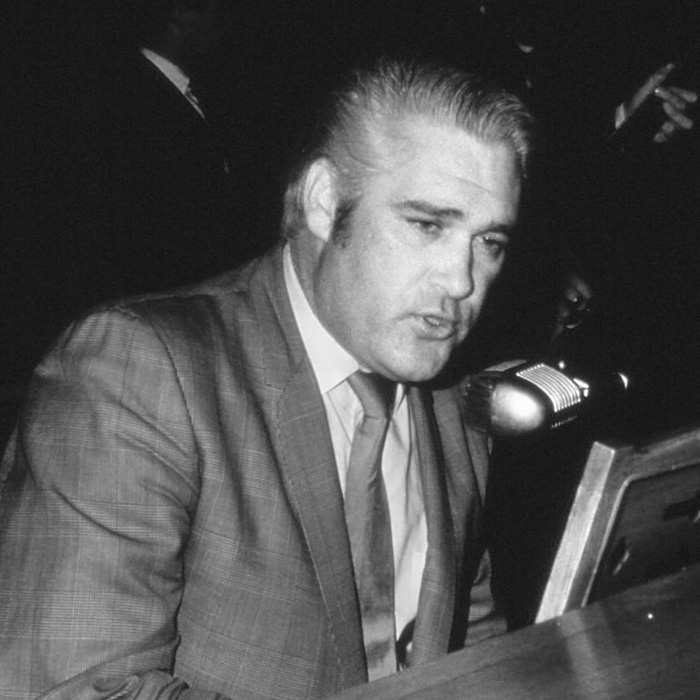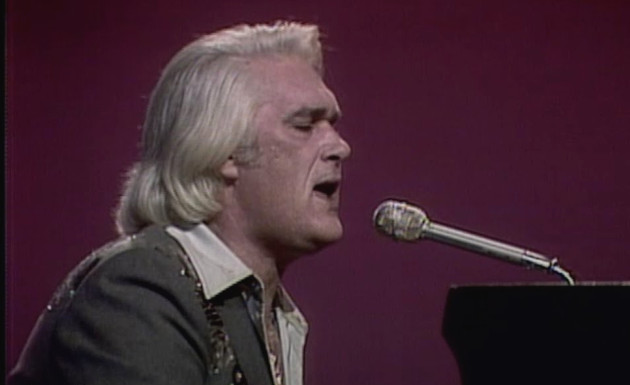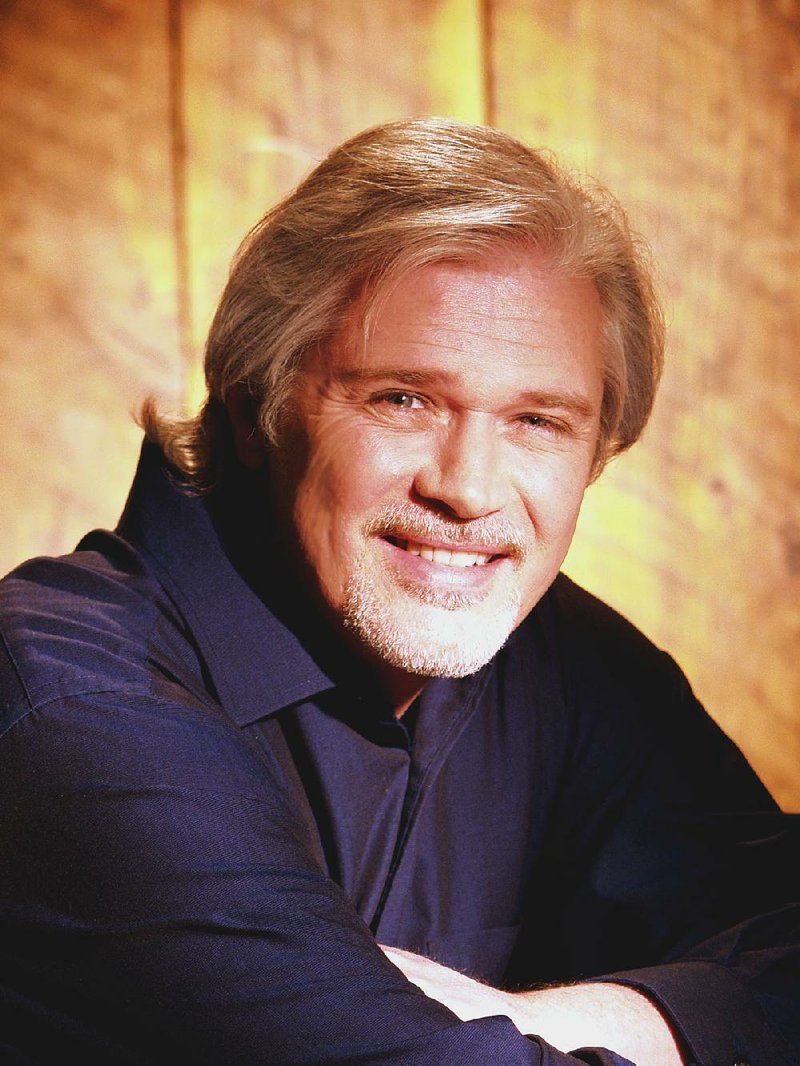Charlie Rich
Charlie Rich

Charles Allan Rich was an American country singer. His eclectic style of music also blended influences from rockabilly, jazz, blues, soul, and gospel.
In the later part of his life, Rich acquired the nickname the Silver Fox. He is perhaps best remembered for a pair of 1973 hits, "Behind Closed Doors" and "The Most Beautiful Girl," which topped the U.S. country singles charts as well as the Billboard Hot 100 pop singles charts and earned him two Grammy Awards. Rich was inducted into the Memphis Music Hall of Fame in 2015. In 2023, Rolling Stone ranked Rich at number 120 on its list of the 200 Greatest Singers of All Time.
Rich was born in Colt, Arkansas, to rural cotton farmers. He graduated from Consolidated High School in Forrest City, where he played saxophone in the band. He was strongly influenced by his parents, who were members of the Landmark Missionary Baptist Church; his mother, Helen Rich, played piano in church and his father sang in gospel quartets. A black sharecropper on the family land named C. J. Allen taught Rich blues piano. He enrolled at Arkansas State College on a football scholarship and then after an injury, transferred to the University of Arkansas as a music major. He left after one semester to join the United States Air Force in 1953.
He married Margaret Ann Greene in 1952. While stationed in Enid, Oklahoma, he formed "the Velvetones", playing jazz and blues and featuring his wife on vocals. When he left the military in 1956, the couple returned to the West Memphis area to farm 500 acres. He also began performing in clubs around the Memphis area, playing both jazz and R&B, and began writing his own material.
After recording some demonstration songs for Sam Phillips at Sun Records that Phillips considered "too jazzy" and insufficiently commercial, Rich was given a stack of Jerry Lee Lewis records and told: "Come back when you get that bad." In a 1992 interview with Fresh Air host Terry Gross, Rich himself recalled Bill Justis telling Rich's wife those words.
In 1958, Rich became a regular session musician for Sun Records, playing on a variety of records by Lewis, Johnny Cash, Bill Justis, Warren Smith, Billy Lee Riley, Carl Mann, and Ray Smith. He also wrote several songs for Lewis, Cash, and others.
After he began recording for the Sun subsidiary Phillips International Records, his third single was the 1960 Top 30 hit "Lonely Weekends", with Presley-like vocals. It sold more than one million copies and was awarded a gold disc by the Recording Industry Association of America. None of his seven follow-up singles was a success, however, though several of the songs became staples in his live set, including "Who Will the Next Fool Be", "Sittin' and Thinkin'", and "No Headstone on My Grave". These songs were often recorded by others to varying degrees of success, such as the Bobby Bland version of "Who Will the Next Fool Be".
Rich's career then stalled and he left the struggling Sun label in 1963, signing with Groove, a subsidiary of RCA Victor. His first single for Groove, "Big Boss Man", was a minor hit, but once again, his Chet Atkins-produced follow-up records all failed. In 1965 he moved to Smash Records, where his new producer, Jerry Kennedy, encouraged him to emphasize his country and rock n' roll leanings, although Rich considered himself a jazz pianist and had not paid much attention to country music since childhood. His first single for Smash was "Mohair Sam", an R&B-inflected novelty-rock number written by Dallas Frazier, which became a top 30 pop hit. It has been mentioned in thousands of articles as the song Elvis Presley played on his jukebox during the Beatles' visit to his home on August 26, 1965. However, once more none of his follow-up singles were successful. Rich again changed labels, moving to Hi Records, where he recorded blue-eyed soul music and straight country, but once more, none of his singles for Hi made a dent on the country or pop charts. One Hi Records track, "Love Is After Me" (1966), belatedly became a white soul favorite in the early 1970s.
Despite his lack of consistent commercial success, Epic Records signed Rich in 1967, mainly on the recommendation of producer Billy Sherrill. Sherrill helped Rich refashion himself as a Nashville Sound balladeer during an era when old rock 'n' roll artists like Jerry Lee Lewis and Conway Twitty were finding a new musical home in the Country format. This new "countrypolitan" Rich sound paid off in the summer of 1972, when "I Take It on Home" went to number six on the country charts. The title track from his 1973 album Behind Closed Doors became a number-one country hit early in that year, then crossed over into the top 20 on the pop charts. This time, his follow-up single did not disappoint, as "The Most Beautiful Girl" spent three weeks at the top of the country charts and two weeks at the top of the pop charts. Now that he was established as a country music star, Behind Closed Doors won three awards from the Country Music Association that year: Best Male Vocalist, Album of the Year, and Single of the Year. The album was also certified gold. Rich won a Grammy Award for Best Male Country Vocal Performance, and he took home four Academy of Country Music awards. One of RCA Victor's several resident songwriters, Marvin Walters, co-wrote for three years with Rich, producing four recordings including the popular "Set Me Free"./https%3A%2F%2Fimg.discogs.com%2FarMLOIzGks8GJ4WeRLc8e77Hcks%3D%2F592x592%2Fsmart%2Ffilters%3Astrip_icc()%3Aformat(jpeg)%3Amode_rgb()%3Aquality(90)%2Fdiscogs-images%2FA-368542-1323802522.jpeg.jpg)
After "The Most Beautiful Girl," number-one hits came quickly, five songs topping the country charts in 1974 and crossed over to the pop charts: "There Won't Be Anymore" (pop number 18), "A Very Special Love Song" (pop number 11), "I Don't See Me In Your Eyes Anymore" (pop number 47), "I Love My Friend" (pop number 24), and "She Called Me Baby" (pop number 47). Both RCA Records and Mercury Records (Smash was a subsidiary of Mercury that was absorbed into the main company in 1970) also re-released his previously recorded material from the mid-1960s. All of this success led the CMA to name him Entertainer of the Year in 1974. In the same year he performed the Academy Award-nominated theme song "I Feel Love (Benji's Theme)" from the film Benji. Rich had three more top-five hits in 1975, but though he was at the peak of his popularity, he began to drink heavily, causing considerable problems off-stage.
References
- "Charlie Rich Biography, Songs, & Albums". AllMusic. Retrieved July 24, 2023.
- ^ "The 200 Greatest Singers of All Time". Rolling Stone. January 1, 2023. Retrieved May 8, 2023.
- a b c d e f g h i j k l m n o p q r s t u v Colin Larkin, ed. (1997). The Virgin Encyclopedia of Popular Music (Concise ed.). Virgin Books. pp. 1010/1. ISBN 1-85227-745-9.
- a b Murrells, Joseph (1978). The Book of Golden Discs (2nd ed.). London: Barrie and Jenkins Ltd. p. 128. ISBN 0-214-20512-6.
- ^ "Charlie Rich: The Silver Fox With A Big Country Sound". Npr.org. September 6, 2010. Retrieved August 18, 2015.
- ^ Christgau, Robert (1981). "Consumer Guide '70s: R". Christgau's Record Guide: Rock Albums of the Seventies. Ticknor & Fields. ISBN 089919026X. Retrieved March 10, 2019 – via robertchristgau.com.

















































